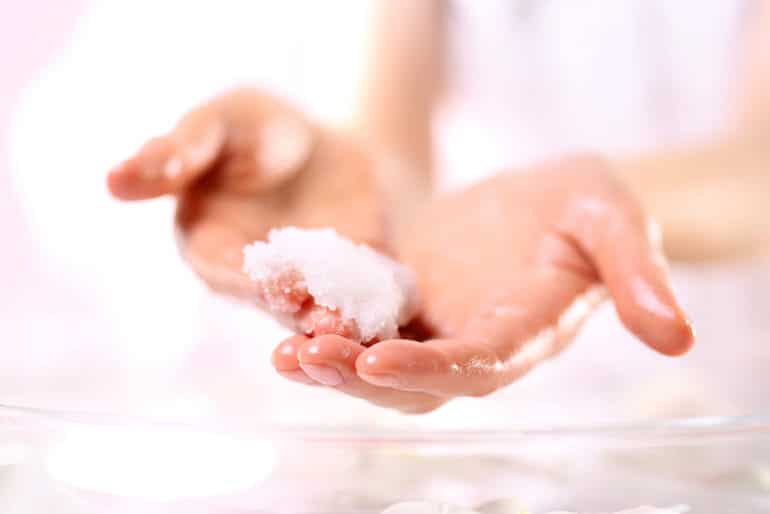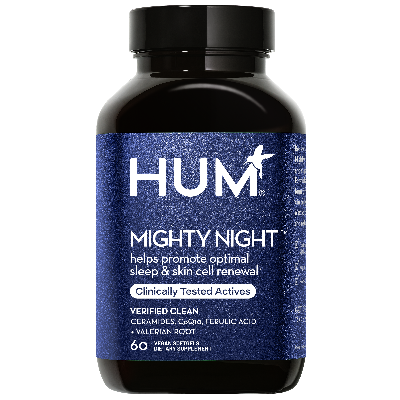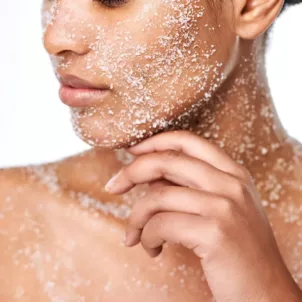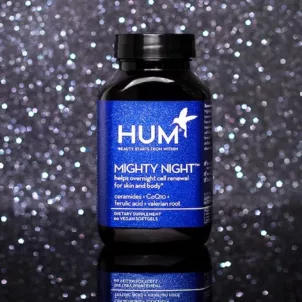Scrub-a-dub-dub, microbeads in your tub… Here’s everything you need to know about incorporating exfoliants into your skincare regimen, plus the key differences between physical vs. chemical exfoliation.


First, what are the benefits of exfoliating?
“Exfoliation is good for helping skin cells renew and turn over faster as old skin sheds away,” says Dr. Naissan Wesley, a board-certified dermatologist at Skin Care and Laser Physicians of Beverly Hills. “It can also be helpful for ridding skin of superficial uneven pigmentation, such as those left from recent acne lesions.” Additionally, according to the American Academy of Dermatology (AAD), exfoliating can allow topicals to work better. Consistent, long-term exfoliation may also stimulate collagen production for prime anti-aging benefits.Is exfoliating good for all skin types?
Dr. Wesley says that gentle exfoliation can be beneficial for all skin types, as long as you don’t overdo it. In particular, she warns that those with sensitive and acne-prone skin should take extra care to find exfoliators that won’t provoke irritation. (The AAD adds that people with rosacea and inflammatory cystic acne should be extra cautious.) Furthermore, Dr. Wesley advises that people consult their dermatologist to find the best exfoliant to best address their skincare concerns.
What are the differences between physical vs. chemical exfoliation?
Physical Exfoliants
Physical exfoliation, aka manual exfoliation, incorporates some kind of coarse material that sloughs away dead skin cells. Types of physical exfoliators include scrubs and brush devices. Also, Dr. Wesley adds, “Some cultures exfoliate with mitts, such as in Turkish and Middle Eastern hammams or at Korean spas.” Other forms of physical exfoliators include treatments such as microdermabrasion and dermaplaning. Dr. Wesley says that these advanced physical exfoliants “can help make the skin feel smooth and improve skin texture and tone, especially after a series of treatments.” If you’re ready to incorporate a facial scrub into your skincare routine, try out The Method: Polish by anti-aging dermatologist and celeb fave Dr. Harold Lancer. (Heck, if it’s good enough for my lifelong girl crush Victoria Beckham, I’ll take two!) Otherwise, for a physical exfoliator gentle enough for daily use, check out Clarisonic’s Mia Smart 3-in-1 Beauty Device.Chemical exfoliants
Chemical exfoliation involves skincare acids to promote skin cell turnover and reveal brighter, glowing skin. The most common chemical exfoliants are alpha hydroxy acids (AHAs), such as lactic acid and glycolic acid, and beta hydroxy acids (BHAs) such as salicylic acid. AHAs are water-soluble and great for dissolving surface-level buildup. Conversely, BHAs are oil-soluble, meaning they can penetrate more deeply into your pores for peak skin-clearing capabilities. You can find chemical exfoliants in cleansers, serums, masks, moisturizers, peel pads, and topical retinoids. To take things a step further, visit a trusted esthetician or cosmetic dermatologist for a higher-grade chemical peel. If you hope to keep breakouts at bay while simultaneously reducing signs of aging, look no further than Dr. Dennis Gross’s Alpha Beta Universal Daily Peel. Packing a superstar combo of AHAs and BHAs, these two-step peel pads are the gold standard for beauty editors and happy customers alike. For those who wish to test the waters with a more mild version of chemical exfoliators, consider topical enzymes derived from fruits such as pineapple (bromelain) and papaya (papain). We love Glow Recipe’s Pineapple-C Bright Serum. It packs bromelain enzymes and natural AHAs to achieve glass skin while staving off acne and hyperpigmentation.Is it okay to exfoliate every day?
Dr. Wesley says it’s fine to exfoliate daily with a non-irritating physical device or topicals like glycolic acid and retinoids. As a general guideline, more oily skin types tend to better tolerate daily exfoliation. Conversely, those with dry skin may benefit most from exfoliating only weekly. Furthermore, it’s okay to use both physical and chemical exfoliants if your skin can tolerate them. As with any new skincare product, you should always do a patch test first and/or start slowly before working your way up. “More vigorous physical exfoliation, such as scrubs or scrub cloths, should be done no more than once per week. Even more aggressive exfoliation, in the form of medical-grade chemical peels or microdermabrasion, should be done monthly at most,” Dr. Wesley concludes. Lastly, be sure to follow up with moisturizer and be extra diligent in applying sunscreen, as freshly exfoliated skin is more susceptible to sun damage.What are the signs and dangers of over-exfoliating?
You know you’ve exfoliated too much if your skin (and forehead in particular) is excessively shiny. Irritation is another tell-tale sign of over-exfoliation: “Redness, bumps, peeling, and even ulceration can result from exfoliating too deeply,” Dr. Wesley warns. *Cue Samantha Jones’s horrifying chemical peel on Sex and the City.*
Is chemical exfoliation better than physical?
Experts caution against harsh facial scrubs, which can potentially cause micro-tears in the skin. (Hence the backlash from Kylie Skin’s Walnut Face Scrub.) That said, you can still opt for physical exfoliants; just choose a scrub that contains small particles. Also, if you’re using a facial brush, be sure to clean it thoroughly and replace brush heads as recommended to prevent bacterial buildup. Most importantly, gently (rather than aggressively) massage physical exfoliators onto your face. Head to head, however, chemical exfoliants may beat out physical exfoliators FTW. They typically have stronger brightening and anti-aging properties, plus more lasting benefits in the long run.The Bottom Line
When all is said and done, you’ll likely have to test out different products and methods to find the best exfoliator for your skin type. Again, whether you choose physical vs. chemical exfoliation, easy does it. By taking a slow and steady approach, you’ll be better equipped to peel to reveal your brightest skin yet.More like this









